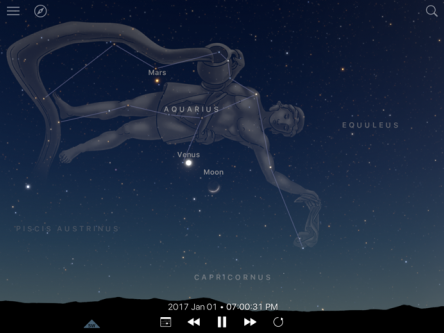
• Jan 1- The crescent moon is 4-5 degrees to the lower right of Venus. Mars is 12 degrees to the upper left of Venus while Neptune is just a ½ degree to the lower right of Mars.
Jan 3 – The peak of the Quadrantid Meteor Shower
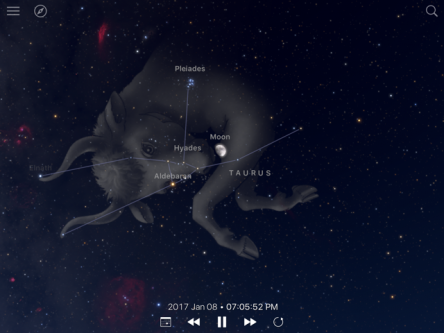
• Jan 8 & 9 – Look for the waxing gibbous moon near the star Aldebaran in Taurus the Bull.
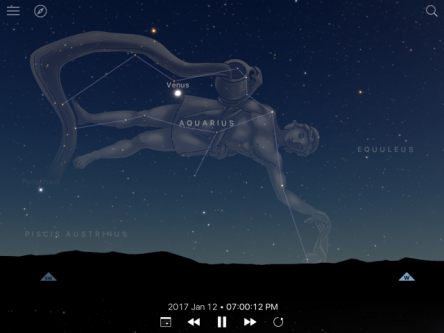
• Jan 12th – Venus is at its greatest elongation from the Sun, 47 degrees. Elongation refers to the angle of separation between a planet and the Sun as seen by an observer from the planet Earth.
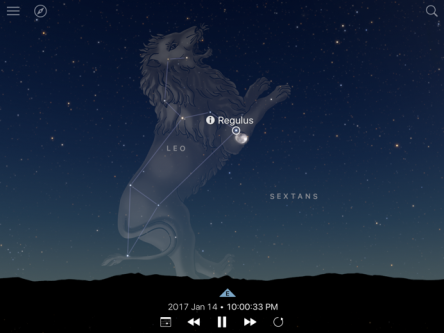
• Jan 14th – The waning gibbous moon is near the star Regulus in Leo.

• Jan 19th – At dawn, look for the last quarter moon within the same binocular field of view as Jupiter and the star Spica (in Virgo).

• Jan 19th – Mercury is at its greatest elongation, 24 degrees.

• Jan 24th –At dawn, a thin crescent moon is just a few degrees away from the ringed planet Saturn.

• Jan 25th – At dawn, the crescent moon is just a few degrees above Mercury.
• Jan 27th New Moon, 6:07PM CST
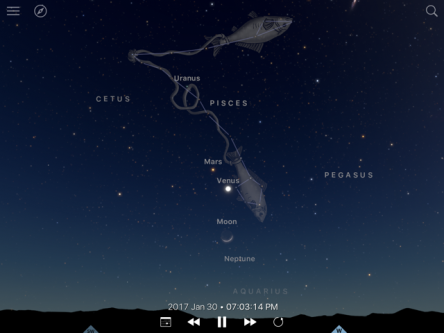
• Jan 30th – The waxing crescent moon will form a lopsided triangle with Venus and Mars in the WSW after sunset.
